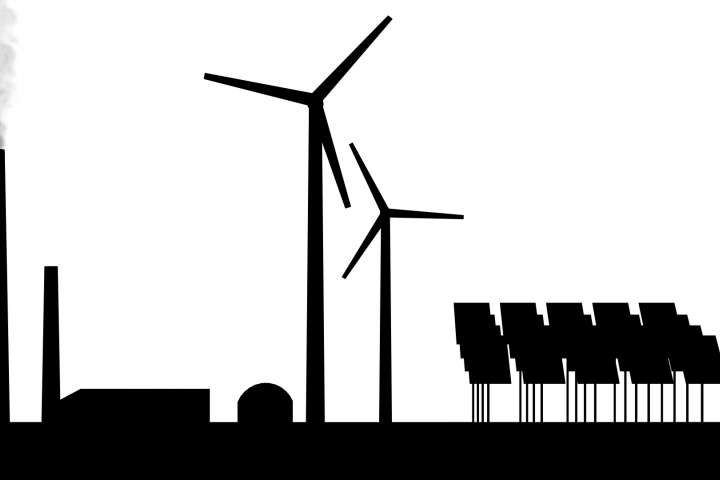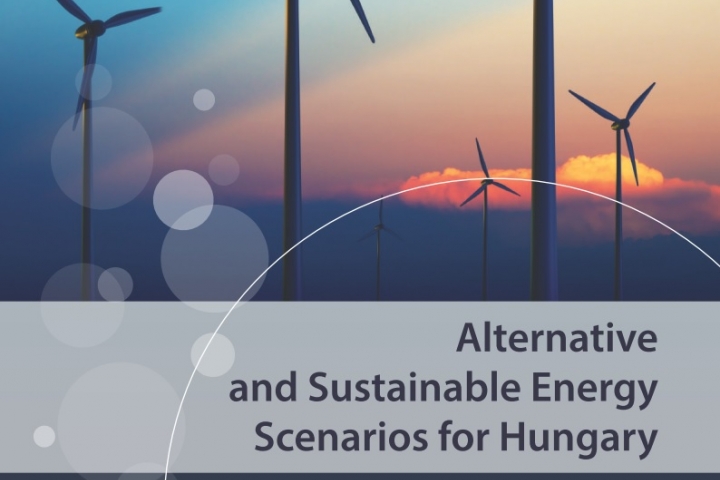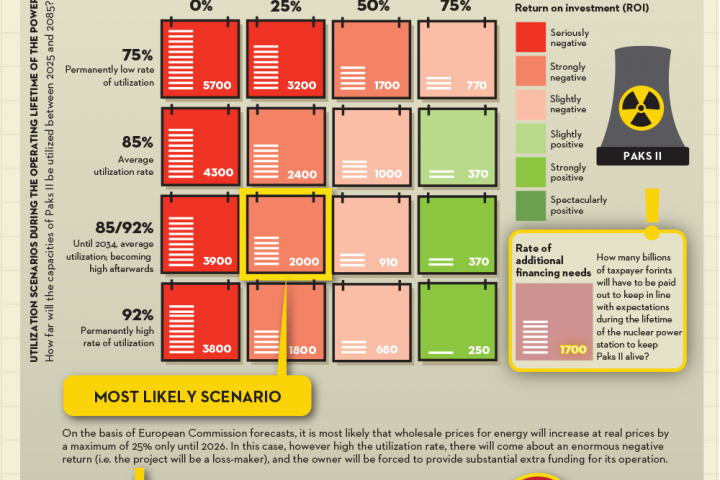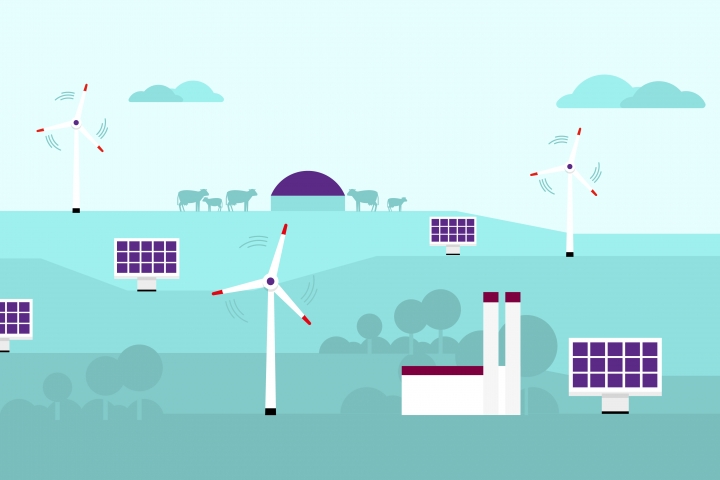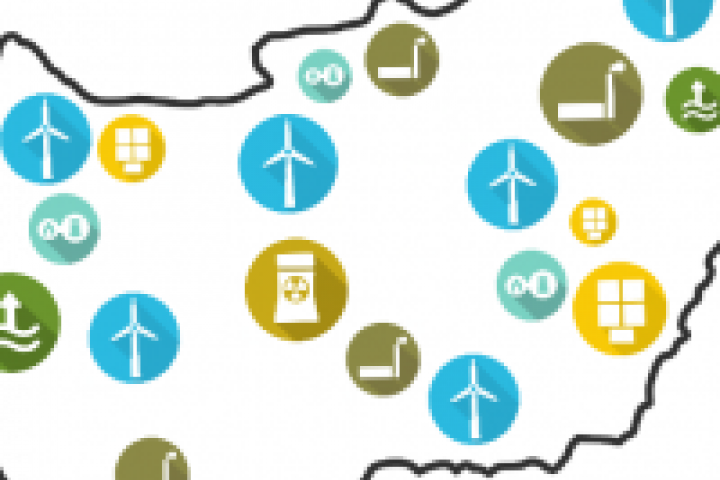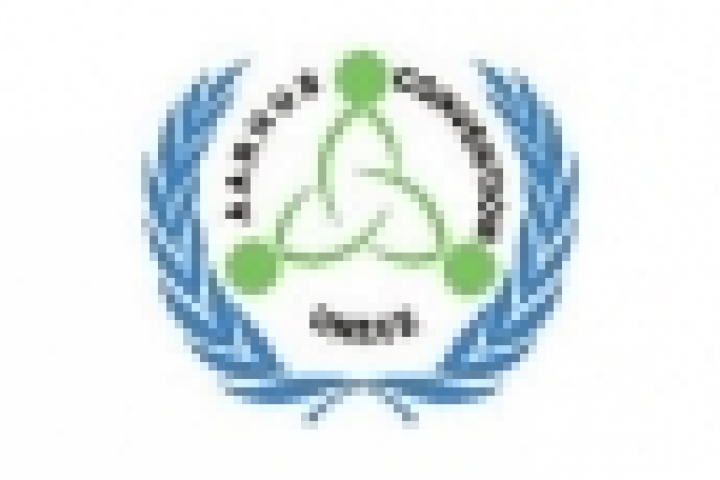The environmental license for the Paks II project is unlawful and unfounded
Energiaklub and Greenpeace Hungary submitted an appeal against the environmental license of the Paks II project as the Environmental Impact Study (EIS) used as a basis for the license is missing key elements. The EIS does not clarify what would happen in the event of a major accident, where the spent fuel cells would be stored permanently, and how the power plant’s heat load would affect the flora and fauna of the Danube. The organizations therefore state that it is irresponsible to issue an environmental license based on such an unfounded environmental impact study. Development and promotion of renewable energy systems based on clean, local resources would be much more advantageous for the country than the Paks II project.
Energiaklub and Greenpeace Hungary submitted its appeal against the environmental license for Paks II to the National Inspectorate for Environment and Nature on 17th October. The two organizations found blatantly unlawful sections and inadequacies in the license and in the environmental impact study the license was based on.
The requirements set by the authorities often cannot be enforced, and they do not specify the responsibilities of the applicant – i.e. MVM Paks II Zrt. –, even in terms of radioactive emissions.* This also goes for the treatment, collection and storage of spent fuel cells that will remain radioactive for hundreds of thousands of years.** In addition, the license does not stipulate specific actions to take to prevent potential nuclear accidents. According to administrative legal practice it is not allowed to set such uncertain requirements in licensing decisions. In light of the above the environmental license is absolutely unfounded.
According to the permit, the area where the new units are planned to be constructed does not directly affect protected natural areas of national importance or Natura 2000 areas, which is incorrect. One of the most outstanding environmental impacts of the planned power plant blocks is the heat load on the Danube caused by the hot cooling water emitted by the power plant. As the whole Hungarian section of the Danube is a Natura 2000 site, Paks II will directly impact this protected river of European importance. The impact study does not provide any assurance that the emitted cooling water will not warm the Danube up over the allowed thermal limit. It is extremely irresponsible of the authorities to grant a license to the Paks II project while we cannot guarantee that the Danube will not deteriorate. The heat load and radioactive emissions impacting the Danube furthermore violates the obligations set in the Water Framework Directive and the river basin management plans.
Energiaklub and Greenpeace Hungary share the opinion that the authorities acted irresponsibly when they granted the environmental license for the Paks II project. Through developing safe, clean and competitive renewable energy sources, Hungary would not need the expansion of the nuclear power plant, and Hungary could decrease its energy dependency from Russia.
The final treatment of radioactive and nuclear waste produced by the nuclear power plant is a key environmental issue. And yet, Paks II was granted this environmental license despite the fact that we do not know what will happen to the highly radioactive spent fuel cells. There is still no concept for this although it is required by international commitments.
It is unacceptable that the impact study completely lacks an analysis and an action plan that could prevent major accidents due to human error and intentional damage – such as terrorism, sabotage or acts of war. The Fukushima and Chernobyl tragedies have already proven that major, unforeseeable accidents do happen.
* “Appropriate technical and organisational measures shall be taken to prevent unjustified, unexpected or uncontrolled discharges.” See environmental permit, page 12, section 1.2.31.
** “Measures shall be taken to ensure that the treatment, storage (for decay, interim storage in pools) and final disposal of spent fuel resulting from the operations are performed safely to prevent contaminating the environment.” See environmental permit, page 11, section 1.2.25.
“In case spent fuel will be subject to to additional treatment (such as reprocessing), measures shall be taken to ensure that the storage and final disposal of radioactive waste resulted are performed safely to prevent the contamination of the environment.” See environmental permit, page 11, section 1.2.27.
